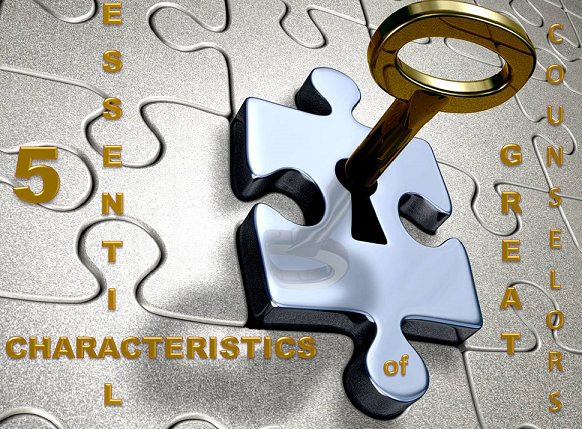The Essential 5 Characteristics of a Great Counselor That A Client Must Have to Find Balance, Harmony and Transformation
The Essential 5 Characteristics of a Great Counselor
I was asked, “What are the 5 Essential Characteristics of a Great Counselor in Houston?”, which caused me to think seriously about what a client must have to find balance, harmony and healthy transformation. This was an opportunity for me to reflect regarding whether I am practicing accordingly and make some changes, if needed. Here is what I discovered.
- The first essential characteristic of a great counselor that a client seeks is a good confidential listener. A primary purpose of counseling is an outlet for expressing what the client sees as distress within their psyche. That distress may be depression, anxiety, lack of self-confidence, a sense of wandering through life aimlessly or any number of other types of distress. A great counselor listens to what the client says, how the client says what they say and sometimes hears meaning in what the client does not say. A great counselor listens with ears, eyes and heart. The confidential part must not be overlooked. For a client to have trust in a counselor they must believe that what they are sharing is held in strict confidence. An exceptional counselor is a confidential listener.
- Another essential characteristic of a great counselor is that they be non-judgmental. For the client to feel free to share their distress, they must also believe they are not going got be judged. Oftentimes, it is the fear of being judged by others that keeps individuals from sharing what is troubling them with friends and family. They must know without a shadow of a doubt that the professional counselor they choose to share their troubles with will not engage in judgmental thoughts, statements or actions. A great counselor is non-judgmental.
- Along with being non-judgmental, an essential characteristic of a great counselor is that they listen as a non-vested participant. When someone shares their troubles with a friend or a family member, that friend or family member may have a vested interest in what they choose as a response. For example, if Shelia is talking to Grace about what to do about a mutual friend Gloria, Grace’s response may be clouded with how the situation may work out best for Grace rather than Sheila. Non-vested does not mean non-caring, it simply means that the guidance that a great counselor provides is given with the sole perspective of what is the best path for the client to find balance, harmony and transformation. A high performing therapist is non-vested.
- A fourth essential characteristic of a great counselor is the role of guide along a life’s path. A great counselor uses their skills as a confidential, non-judgmental, non-vested listener to assist the client in the process of discovering their own path toward balance, harmony and transformation. A great counselor helps clients see the obstacles in their path and helps with the decision process of what to do with those obstacles. Some obstacles may be handled best by simply rolling them out of the path. Others might need to be disengaged by changing a response, if the breaker is turned off, the light will not come on when the switch is flipped. Whatever the obstacles in the life path, an effective counselor provides guidance along the path of life.
- The last of the five essential characteristics of a great counselor is something of a bit of each of the previous four. A great counselor is good with puzzles. Similarly, as in the case of crossword puzzle, finding that right answer to 34 down makes all of the across answers connected to it, make more sense. A thoughtful counselor can make pertinent suggestions for 34 down. When doing a jigsaw puzzle, you might define the boundaries first, then group the like pieces together and finish sections at a time. An observing, astute counselor will notice the nuances in a particular piece that identify it as belonging to a different section of the puzzle than was originally thought. Placing that piece in the right section will remove it from a section that it simply did not fit into and use it to complete a section that was missing a piece. For many of us, life presents puzzles. A great counselor is good with the puzzles that clients bring into session.
These characteristics of a great counselor have helped my clients hundreds of times. While they are not the standard skills, typically, listed by counselors such as empathy, caring, positive regard, etc., they are the skills that I have observed over the years that meant the most to my clients. Clients find balance as they feel heard by a non-judgmental, confidential listener and come to know that their struggles are real and that they can find ways to work through their struggles. Clients find harmony as they clear the obstacles in their path and find the way more peaceful. Transformation comes as the puzzles that led clients to counseling are no longer puzzles and their lives feel complete with the skills to spend time on a path to inner peace.
Rosemary Behrens, PhD, LPC-S
Inner Peace Counselors
832-470-7890
Facebook: https://www.facebook.com/Inner-Peace-Counselors






I agree wholeheartedly with this article and that Inner Peace Counselors practice the attributes mentioned. Objective, non-judgemental and confidential listening are key to a good trusting relationship. The hard work of therapy, removing roadblocks and putting pieces together, cannot begin until the relationship of trust is first established.